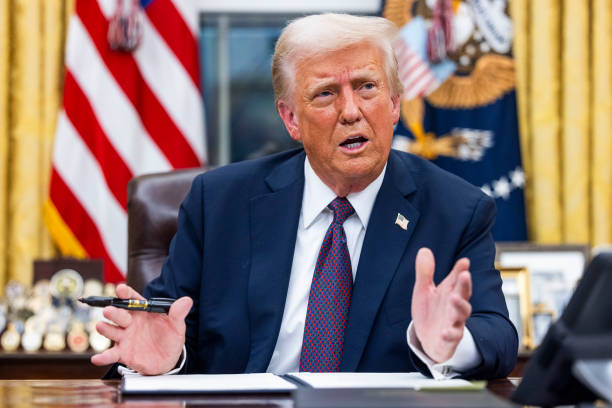
• FG urges observance of global convention on repatriation
• FG to engage 28,000 Nigerian health workers on USAID payroll
As President Donald Trump continues to promote economic nationalism, protectionism, deglobalisation and fragment the global economy with some policies, there are concerns about the future of trade relations between Nigeria as well as other African countries and the United States under AGOA.
The flurry of retaliatory trade policy actions from many countries across a wide range of product groups has further compounded concerns about global trade.
To this end, the Federal Government urged America to follow the laid down convention on the deportation of persons in repatriating immigrants.
To de-escalate unemployment, the Coordinating Minister of Health and Social Welfare, Ali Pate, said the Federal Government was planning to engage 28,000 Nigerian health workers previously in the employ of the United States Agency for International Development (USAID).
The Chief Executive Officer (CEO) of the Centre for the Promotion of Private Enterprise (CPPE), Dr Muda Yusuf, said that given the present trade policy of the Trump Administration, the Africa Growth and Opportunity Act (AGOA) would face termination, though Nigeria did not benefit much from it.
According to him, the ongoing tariff war offers opportunities for export and investment for Nigeria, as it could take advantage of the gaps the trade war may create in countries.
He stated: “There is also the prospect of high inflation in the U.S. as a result of the tariff war, thus creating a possibility of imported inflation from the U.S. to Nigeria. Nigerian companies could position themselves to take advantage of supply gaps and form new bilateral and multilateral trade alliances.”
“Also, Diaspora remittances may be affected by the immigration policy. The U.S. has about 500,000 Diaspora Nigerians, many of whom may be affected by the immigration policy on documentation.”
On USAID intervention, he noted that its value in 2023 stood at $1.02 billion across multiple sectors, including health, especially HIV/AIDS, water and sanitation, education, maternal and childcare, disease prevention, promotion of democracy and improving governance transparency.
THE Federal Government expressed the concerns of Nigerians over the likely suspension of the Drop Box Visa System in the U.S.
Minister of State for Foreign Affairs, Bianca Odumegwu-Ojukwu, stated this when the U.S. Ambassador to Nigeria, Richard Mills Jr., visited her at the Tafawa Balewa House, Abuja.
The minister bemoaned the emotional and financial pains that many Nigerians in the U.S. were already experiencing since the new administration indicated its resolve to repatriate some categories of people from Uncle Sam’s country.
Highlighting that Nigerians in the U.S. deserve dignified repatriation, the minister asked the White House to find a way of ameliorating the trauma of those to be deported, including allowing them ample opportunity to retrieve their assets in America.
She said: “With the new administration in the U.S., we want a situation where there will be commitments. If there will be repatriation, we want a dignified return. We were told that about 201 Nigerian nationals are in US immigration camps, and about 85 have been cleared for deportation.
“Will there be any way of ameliorating their pains? This has been of great concern to not just Nigerian nationals in the U.S. but family members in Nigeria who depend on them for survival, children whose school fees are paid for by these Diasporans.”
IN an interview on Channels Television at the weekend, Pate said the Federal Government was ready to take ownership of the country’s healthcare sector amid the change in the policy of the U.S. government.
Trump recently ordered a funding pause for HIV treatment in developing countries as part of an executive order on foreign aid. The executive orders also affected the operations of USAID and other foreign interventions of the U.S. government.
Consequently, the U.S. Department of State suspended disbursements from the President’s Emergency Plan For AIDS Relief (PEPFAR), which was providing HIV treatment for more than 20 million people living with the disease globally, including 566,000 children under 15 years of age.



![[FILES] A picture shows the Argentinian flag. (Photo by DANIEL LEAL-OLIVAS / AFP)](https://cdn.guardian.ng/wp-content/uploads/2020/11/Argentina-.jpg)


